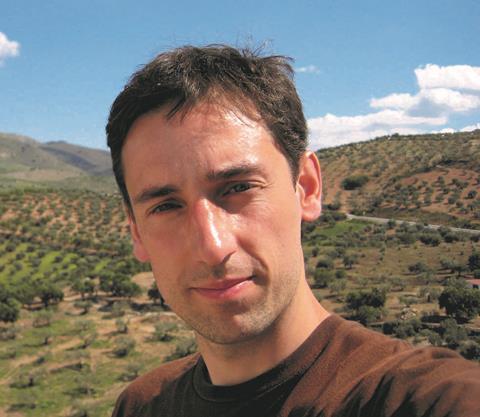Imran uses his expertise in chemistry to do research on hazardous materials. He tells Josh Howgego what it’s like to do fundamental research for the government

Imran first became excited about science listening to Johnny Ball and Richard Feynman – people with an insatiable curiosity about the world around them. ‘Listen to people like that,’ he says, ‘and you can’t fail to be inspired to do some experiments.’
Imran spent much of his early career in academia, carrying out not only a PhD but also postdoctoral research where he worked on the pioneering technique of surface enhanced raman spectroscopy (SERS). He has now finally moved out of academia, and works for the Atomic Weapons Establishment (AWE) in Berkshire. AWE manufactures and maintains warheads for the UK’s nuclear deterrent on behalf of the Ministry of Defence. Imran enjoys his job as it still allows him time to enjoy looking into problems and finding out what’s going on.
He explains that the great thing about AWE is that it provides a happy medium between academic and industrial research. There are similarities with industry, but also an intellectual atmosphere reminiscent of academia. Imran is able to pursue research because it furthers understanding about materials and doesn’t always have to justify with an opportunity for a profit.
Investigating materials
Imran’s job is all about using spectroscopy on materials to understand their properties and control their performance. ‘At AWE we must understand and underwrite the safety of nuclear weapons, as well as building them,’ he says. SERS is a relatively new technique, but it can provide scientists with interesting and valuable information about materials. SERS is sometimes temperamental though, and Imran is focusing on how to make the technology more robust.
He also works with fibre optic sensors, which make it possible to analyse materials remotely. This means it’s possible to study dangerous materials from a distance or safely through a barrier. It takes all sorts of specialists to create these new fibre optic tools and ensure they are capable of functioning properly in the field. Imran has to be good at working in a team with technologists and engineers to help develop the new devices.
Communication
Once he has made discoveries and carried out practical work it’s important that Imran can communicate what he’s found out. In fact he spends about half of his time doing the practical science and the other half communicating it. He publishes his work in peer reviewed journals and attends international conferences so he can tell others about what he has done. It is a great way to get feedback and inspiration from other experts and to learn about their approaches to the problems Imran is trying to solve.
Get inspired
Imran’s passion for science has led him to an exciting job at the cutting edge of research. He recommends anyone wanting to be a research scientist should try getting a summer placement in a lab – selected universities offer this – then they’ll see what it’s really like. ‘Nothing beats getting some experience in a real research group,’ he says.
Pathway to success
2007–present, Sensors and spectroscopy development scientist at AWE.
2003–2006, Postdoctoral research on electron microscopy of silver nanostructures, Imperial College London.
1999–2003, PhD studying surface enhanced Raman spectroscopy, University of Strathclyde, Glasgow.
1994–1999, BSc in chemistry, University of Strathclyde, Glasgow.
Industrial sandwich placement at ICI Chemicals working on catalyst testing.
1992–1994, Scottish Highers in chemistry, physics, biology, maths, history and english, Chryston High School, Glasgow.
This article was originally published in InfoChem









No comments yet